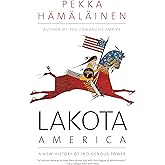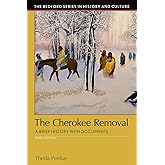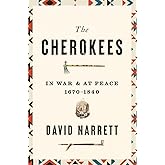
Enjoy fast, free delivery, exclusive deals, and award-winning movies & TV shows with Prime
Try Prime
and start saving today with fast, free delivery
Amazon Prime includes:
Fast, FREE Delivery is available to Prime members. To join, select "Try Amazon Prime and start saving today with Fast, FREE Delivery" below the Add to Cart button.
Amazon Prime members enjoy:- Cardmembers earn 5% Back at Amazon.com with a Prime Credit Card.
- Unlimited Free Two-Day Delivery
- Streaming of thousands of movies and TV shows with limited ads on Prime Video.
- A Kindle book to borrow for free each month - with no due dates
- Listen to over 2 million songs and hundreds of playlists
- Unlimited photo storage with anywhere access
Important: Your credit card will NOT be charged when you start your free trial or if you cancel during the trial period. If you're happy with Amazon Prime, do nothing. At the end of the free trial, your membership will automatically upgrade to a monthly membership.
Buy new:
$69.95$69.95
Ships from: Amazon.com Sold by: Amazon.com
Save with Used - Very Good
$55.47$55.47
$3.99 delivery Tuesday, May 6
Ships from: Goodwill of North Georgia Sold by: Goodwill of North Georgia

Download the free Kindle app and start reading Kindle books instantly on your smartphone, tablet, or computer - no Kindle device required.
Read instantly on your browser with Kindle for Web.
Using your mobile phone camera - scan the code below and download the Kindle app.

Follow the author
OK
Race and the Cherokee Nation: Sovereignty in the Nineteenth Century Hardcover – January 15, 2008
Purchase options and add-ons
"We believe by blood only," said a Cherokee resident of Oklahoma, speaking to reporters in 2007 after voting in favor of the Cherokee Nation constitutional amendment limiting its membership. In an election that made headlines around the world, a majority of Cherokee voters chose to eject from their tribe the descendants of the African American freedmen Cherokee Indians had once enslaved. Because of the unique sovereign status of Indian nations in the United States, legal membership in an Indian nation can have real economic benefits. In addition to money, the issues brought forth in this election have racial and cultural roots going back before the Civil War.
Race and the Cherokee Nation examines how leaders of the Cherokee Nation fostered a racial ideology through the regulation of interracial marriage. By defining and policing interracial sex, nineteenth-century Cherokee lawmakers preserved political sovereignty, delineated Cherokee identity, and established a social hierarchy. Moreover, Cherokee conceptions of race and what constituted interracial sex differed from those of blacks and whites. Moving beyond the usual black/white dichotomy, historian Fay A. Yarbrough places American Indian voices firmly at the center of the story, as well as contrasting African American conceptions and perspectives on interracial sex with those of Cherokee Indians.
For American Indians, nineteenth-century relationships produced offspring that pushed racial and citizenship boundaries. Those boundaries continue to have an impact on the way individuals identify themselves and what legal rights they can claim today.
- Print length200 pages
- LanguageEnglish
- PublisherUniversity of Pennsylvania Press
- Publication dateJanuary 15, 2008
- Dimensions6.25 x 0.75 x 9.25 inches
- ISBN-100812240561
- ISBN-13978-0812240566
Book recommendations, author interviews, editors' picks, and more. Read it now.
Frequently purchased items with fast delivery
Editorial Reviews
Review
"Yarbrough marches to a minefield, crosses it, and emerges having deftly dismantled and examined the explosive topics of sex and gender, race an nationality, custom and law among brown, white, and black people." ― Chronicle of Oklahoma
About the Author
Product details
- Publisher : University of Pennsylvania Press; First Edition (January 15, 2008)
- Language : English
- Hardcover : 200 pages
- ISBN-10 : 0812240561
- ISBN-13 : 978-0812240566
- Item Weight : 1 pounds
- Dimensions : 6.25 x 0.75 x 9.25 inches
- Best Sellers Rank: #3,817,550 in Books (See Top 100 in Books)
- #5,616 in Native American Demographic Studies
- #6,822 in Indigenous History
- #12,112 in Native American History (Books)
- Customer Reviews:
About the author

Discover more of the author’s books, see similar authors, read book recommendations and more.
Customer reviews
- 5 star4 star3 star2 star1 star5 star100%0%0%0%0%100%
- 5 star4 star3 star2 star1 star4 star100%0%0%0%0%0%
- 5 star4 star3 star2 star1 star3 star100%0%0%0%0%0%
- 5 star4 star3 star2 star1 star2 star100%0%0%0%0%0%
- 5 star4 star3 star2 star1 star1 star100%0%0%0%0%0%
Customer Reviews, including Product Star Ratings help customers to learn more about the product and decide whether it is the right product for them.
To calculate the overall star rating and percentage breakdown by star, we don’t use a simple average. Instead, our system considers things like how recent a review is and if the reviewer bought the item on Amazon. It also analyzed reviews to verify trustworthiness.
Learn more how customers reviews work on AmazonTop reviews from the United States
There was a problem filtering reviews. Please reload the page.
- Reviewed in the United States on May 5, 2009Recently, the Cherokee Nation has voted to disenroll all members who are the descendants of Freedmen with no Cherokee ancestors. The point of this book is that this controversial decision has a history. This book corroborates Halliburton's "Red over Black" that said Cherokees of the past mistreated Blacks just as much as whites of the time did.
Some people incorrectly say, "History repeats itself." Well, this book starts off with the example of a man who kills a Cherokee and replaces her with a Black slave and the other Cherokees accept it. However, the Nation later wrote laws saying whites could marry Cherokees but Blacks could not. Both in this book and in the recent controversy, no matter how culturally-identified these Blacks are with Cherokees, they get consistently treated as other or less than. This book also points to the process of racialization. Before the pilgrims, Cherokees would have seen themselves as completely different from other indigenous tribes. In this book, as time goes on, the author points out to how non-Cherokee Indians become a part of the Cherokee society.
This book does not tackle race alone; it speaks of how gender informs the topic as well. The Cherokees were originally a matrilineal society, but as they assimilated they were introduced to European patrilineal patterns. Numerically, it became important to count the children of Cherokee men and not just those of Cherokee women, with the caveat that the children were not part Black, according to the book. White men who married into the Nation had to take a loyalty oath and the author spells out why white women did not have the same requirement. Currently, in Black and Asian-American communities, one gender is more likely to practice exogamy than the other. Here the author speculates as to why more Cherokee women outmarried compared to the men.
Law professors of color have warned, "Never play the oppression sweepstakes!" However, this can ignore the reality of when one group is privileged over another. This book spoke of how Cherokee elites were often part white and so they were happy to accommodate that group. The author notes that the Cherokee Nation only abolished slavery because the US forced it to. It only gave rights to Freedmen for the same reason. Though whites may have had limited rights in the Nation, Blacks always had fewer rights than them.
Interestingly, the book chapters get Blacker as one keeps reading. You hear more about Blacks living in the Nation and their accessing the courts. I know countless African Americans who are incredibly proud to have Native American ancestors. The author explains why that is the case in contrast to the discrimination detailed thoroughly in the beginning chapters of the book.
I hate hearing about Black people being oppressed by anybody, so I can't say this was a pleasurable read. However, the book is well-organized, very interesting, and written in a way that non-academics could understand too. I applaud the author intensely for her effort.












